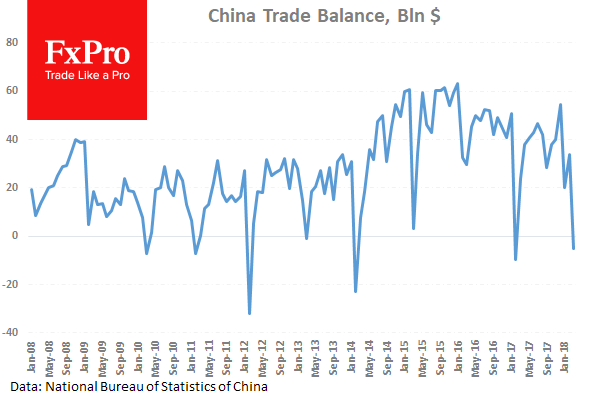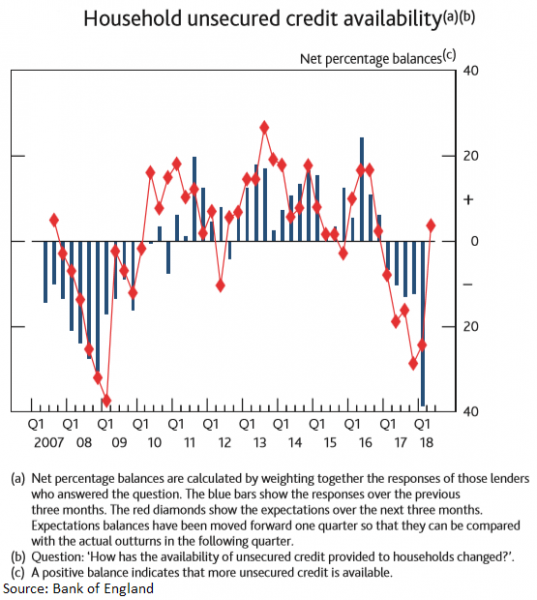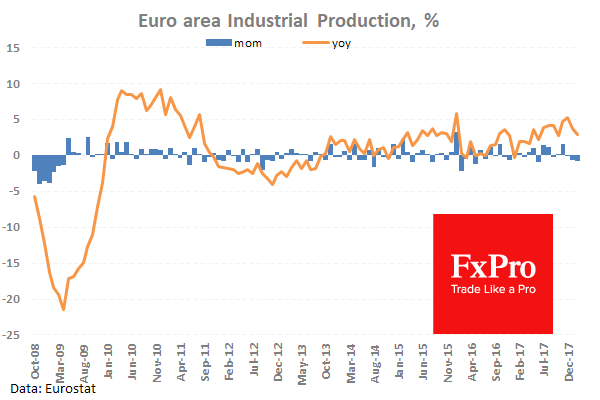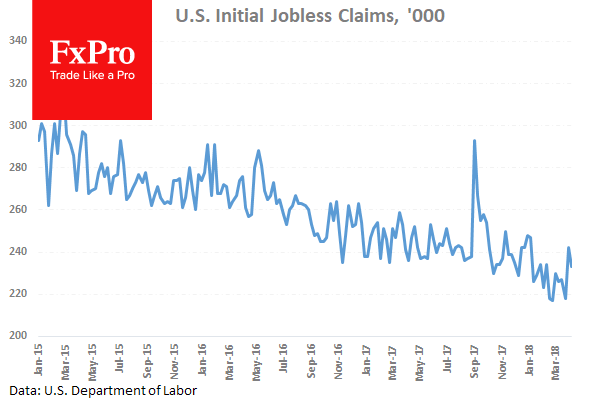The AUD is the strongest currency today, as Chinese Imports (YoY) (Mar) came in at 14.4%, much stronger than the expected 10.0%, from a prior reading of 6.3%. This boosted the AUD, which was already higher due to positive risk sentiment, with AUDUSD up 0.28% to 0.77736 overnight. This pair was down at a low of 0.76516 on Monday.
The USDJPY has also moved higher, as the market sees a lack of any move against Syria as positive for risk and a relief rally is taking place. The pair is back to the high from a week ago, at 107.500, after dipping as low as 106.610 during the week. US WTI Oil rose on the back of the tensions in Syria and is currently trading around the $67.00 level, as traders saw a risk to supply developing from any potential conflict in the region. The USDTRY hit a high of 4.19287 during the week but is now trading at 4.11044. Stock markets have moved higher as tensions have eased, with the US500 setting a weekly high in yesterday’s session of 2674.30. Gold is down from a high of $1365.30 to $1338.91. Traders will watch for developments over the weekend and the scope and damage caused by any strike on Syria will be a main focus in the coming week.
The BOE Credit Conditions Survey was published. This is a survey of lenders which asks respondents to rate the level of credit conditions, including secured and unsecured loans to households, small businesses, non- financial corporations and non- bank firms. The report showed a large drop in the availability of unsecured loans to consumers during Q1. This is the largest drop since records began. Lenders expect broadly unchanged availability over the next 3 months. They see a rebound in demand for mortgage lending for the next 3 months, with supply to remain steady. GBPUSD was down after the data from 1.41766 to 1.41446.
Eurozone Industrial Production w.d.a. (YoY) (Feb) was released, coming in at 2.9% v an expected 3.8%, from a prior of 2.7%. Industrial Production s.a. (MoM) (Feb) was -0.8% v an expected 0.1%, from -1.0% previously, which was revised down to -0.6%. This data was compiled during the cold snap that gripped the continent so there is still hope for a rebound in the coming months. EURUSD fell from 1.23458 to 1.23340 following the release of this data.
The ECB Monetary Policy Meeting Accounts were released. This is a detailed record of the ECB Governing Board’s most recent meeting, providing in-depth insights into the economic conditions that influenced their decision on where to set interest rates. The minutes showed the ECB broadly agreed that there is not enough evidence that inflation is sustained. The removal of easing bias should not be misunderstood and past EUR appreciation has not had a significant impact on demand. Despite the global upturn, underlying price pressures had remained subdued. Annual consumer price inflation in the OECD countries had ticked down slightly in January, to 2.2%, from 2.3% in December. The core inflation had remained steady, with inflation excluding food and energy standing at 1.8% in January. The ECB had widespread concerns over the risk of a trade conflict. EURUSD moved higher from a low of 1.23272 up to 1.23513 after this release.
The ECB’s Coeure delivered a scheduled speech from Paris. He said that the ECB’s current monetary policy stance was appropriate. Potential growth has not fallen by as much as we thought, it may imply that neutral rate of interest might be higher than is commonly estimated. EURGBP arrested its decline at 0.86908 and moved up to 0.86979 before turning lower again.
US Continuing Jobless Claims (Mar 30) came in at 1.871M v an expected 1.848M, against a previous 1.808M, which was revised up to 1.818M. Initial Jobless Claims (Apr 6) was 233K v an expected 230K, from 242K previously. The Initial Claims ticked up again after last week, with this week’s data staying below the high but exceeding expectations. The expected rise in continuing claims comes after a decade low number was recorded last week despite its revision higher.
FOMC Member Kaskari made a scheduled speech with the following comments: The US must avoid a trade war with China. He says he is sympathetic on the need to push China to open more markets to US businesses. It is very hard to game out where the US trade dispute with China will end. Immigration has benefitted the US tremendously. We have not seen wage growth nationally and there is likely still some slack in labour market. He also said he thinks the tax cuts and stimulus from government spending may help push inflation to 2%.
Business NZ PMI (Mar) was released and came in at 52.2, with a previous reading of 53.4, which was revised down to 53.3. This data has been declining since its December reading of 57.7. A reading above 50.0 indicates growth. NZD USD moved up from 0.73749 to 0.73794 following this data release.
EURUSD is up 0.03% overnight, trading around 1.23292.
USDJPY is up 0.16% in early session trading at around 107.482.
GBPUSD is up 0.03% this morning, trading around 1.42309.
Gold is up 0.31% in early morning trading at around $1,338.91.
WTI is down -0.34% this morning, trading around $66.88.




